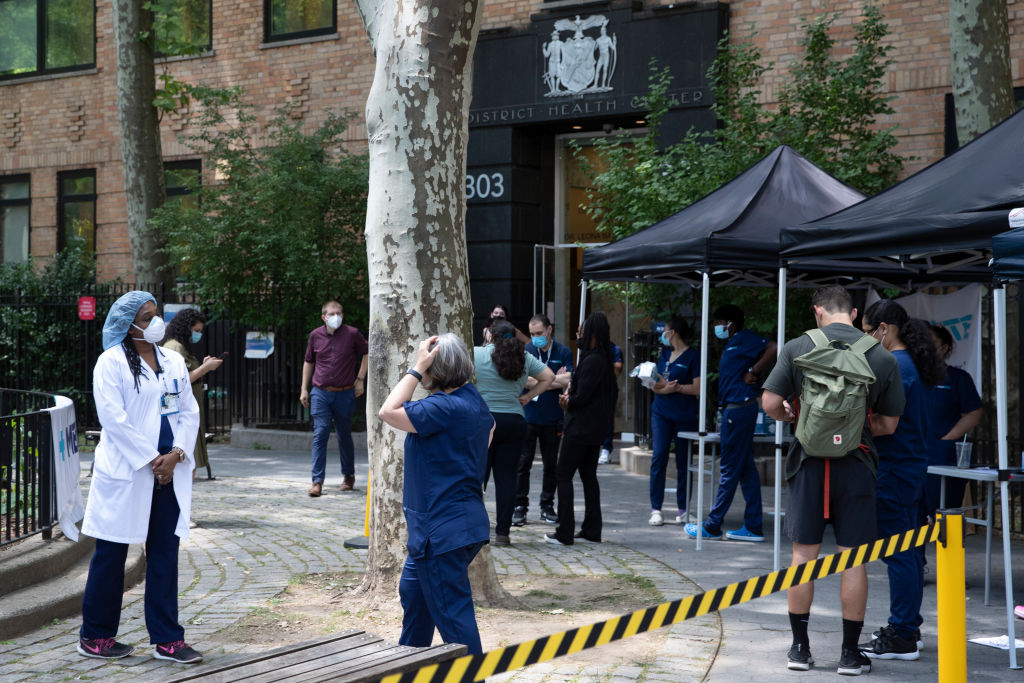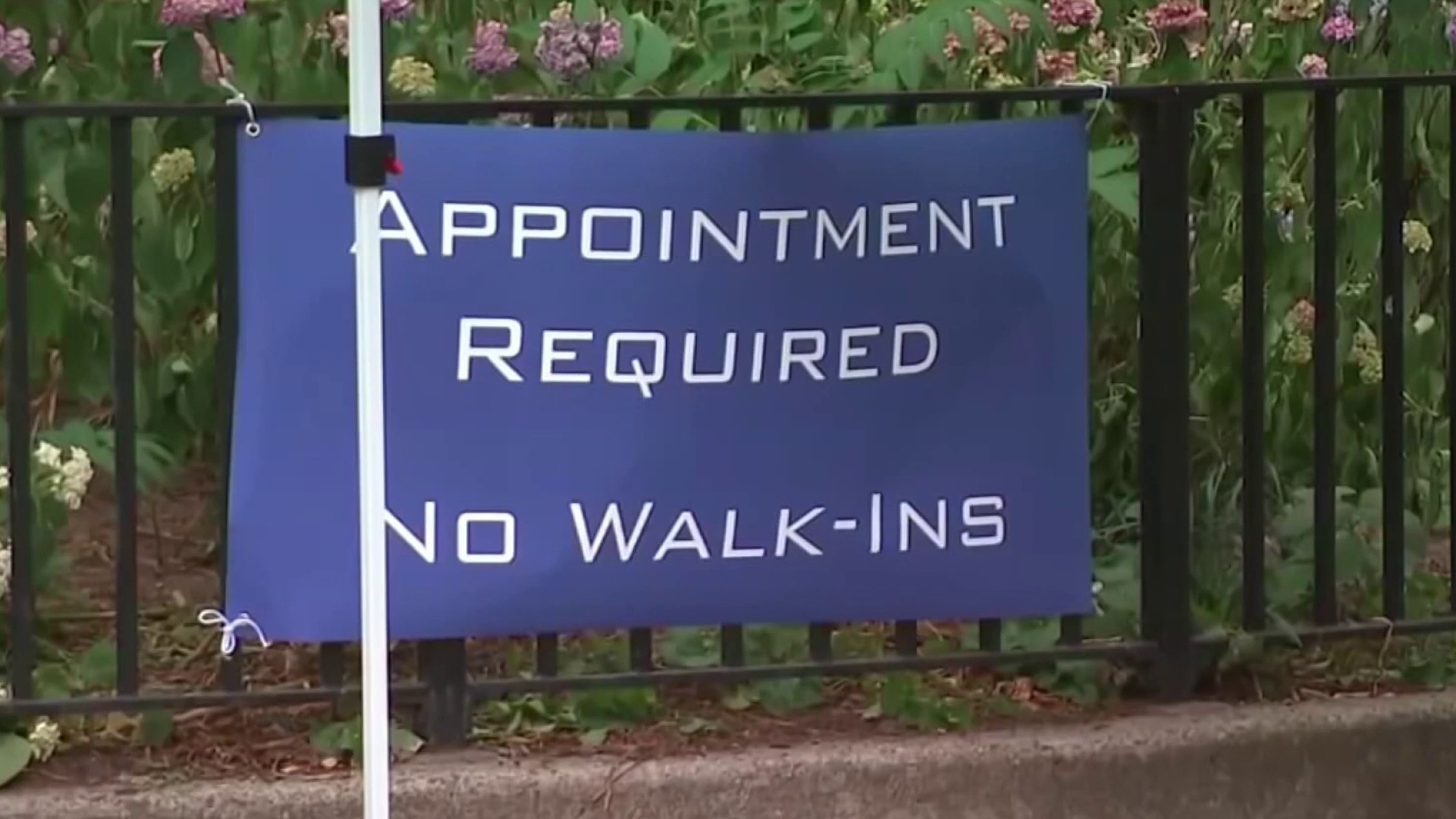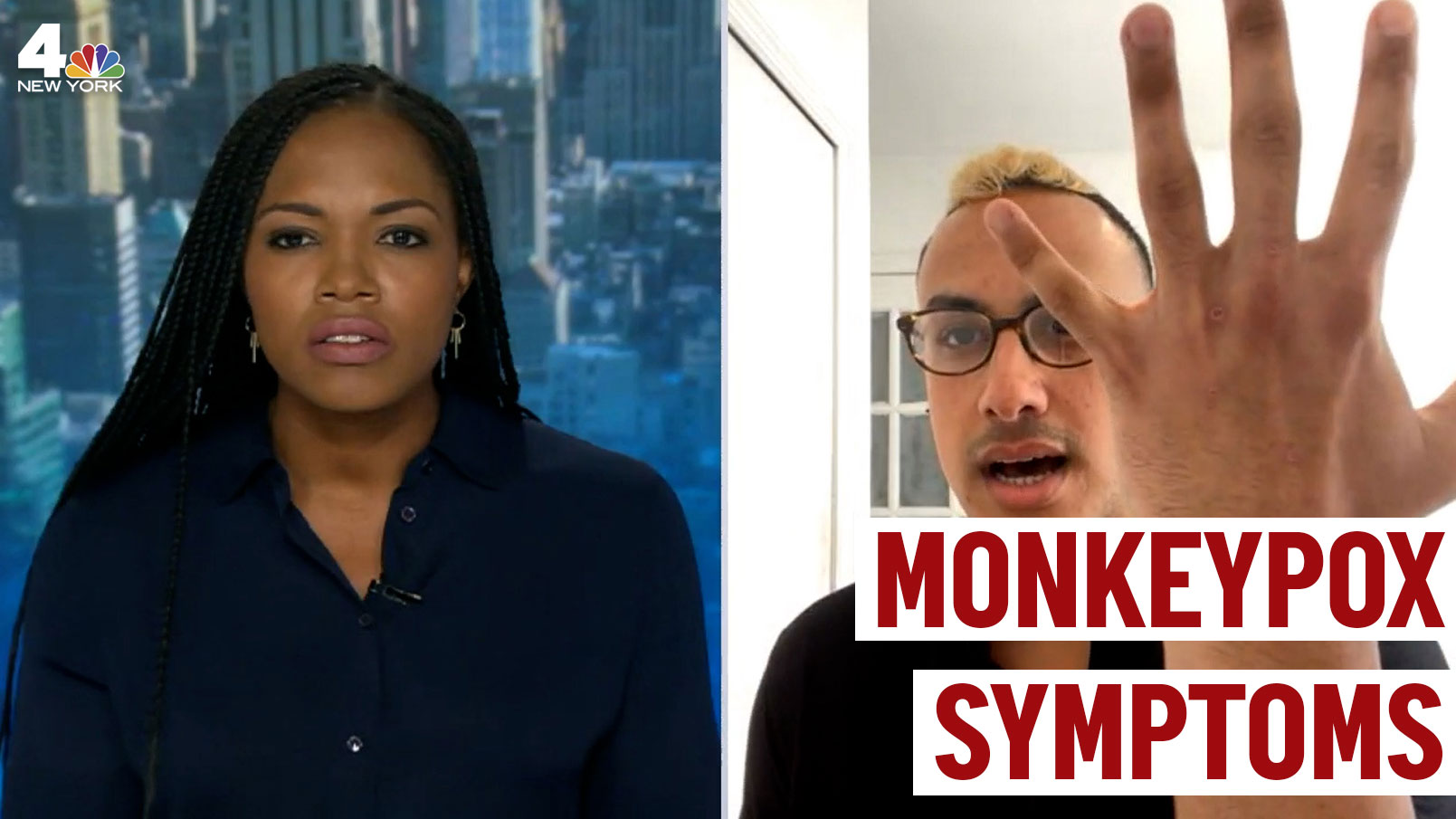New York City will make another 8,200 monkeypox vaccine appointments available at 6 p.m. Friday, as it expands citywide the locations that will deliver the shots.
The appointments will be available through the city’s vaccine portal. (Click here to open.)
In addition to the existing monkeypox vaccine clinics located at the city’s Chelsea, Central Harlem, and Corona Sexual Health Clinics, another clinic will open at NYC Health + Hospitals/Gotham Health on Vanderbilt Avenue in Staten Island.
As of Sunday there will also be three mass vaccinations sites open for appointments at:
- Aviation High School (45-30 36th Street in Queens)
- Bushwick Education (440 Irving Avenue in Brooklyn)
- Bronx High School of Science (75 W 205th Street in the Bronx)
On top of the 8,200 appointments at vaccination sites, the city said it would make another 4,000 shots available via referral from “community partner organizations serving highest-risk patients.”
The expansion comes as cases double here every five days. The city represents more than a quarter of all U.S. infections, according to CDC data, and more than 2% of all current infections worldwide.
On Thursday the city reported a total of 389 infections, up 16% in one day.
But the latest round of vaccine appointments ran out almost immediately on Tuesday after a wave of errors left many people unable to even access the booking website. Mayor Eric Adams, calling the city the “epicenter of the Monkeypox epidemic,” said Wednesday he’d asked the CDC and Department of Health and Human Services to ensure more vaccine distribution.
Getting hands on a vaccine has been difficult — only a few thousand appointments have opened in the past few weeks.
While monkeypox is contagious and typically confined to the African continent, health officials say the risk to the general U.S. public is low. They say this isn’t COVID all over again because vaccines already exist to treat orthopoxvirus, the family of viruses to which monkeypox and diseases like smallpox and chickenpox belong.
But ensuring a steady supply of the FDA-approved monkeypox vaccine is a problem. And it’s causing other headaches, too.
But how does the monkeypox vaccine even work? It’s a two-dose vaccination process like many others, though the vaccine supply issue may mean some New Yorkers have to wait an extra week or two to get their next layers of protection against monkeypox.
City Hall has now formally asked the Biden Administration to delay those second doses, precisely so it can get more first doses in arms while supply is constrained.
At this point, eligibility in New York City is limited to “gay, bisexual or other men who have sex with men and transgender, gender non-conforming or gender non-binary persons ages 18 and older who have had multiple or anonymous sex partners in the last 14 days,” under the guidelines released by the health department. Learn more here.
The city is also launching more active messaging, saying people could now receive text alerts about the virus and new appointment openings by texting MONKEYPOX to 692692, or MONKEYPOXESP for alerts in Spanish.
What Is Monkeypox?
Monkeypox was first discovered in 1958, when outbreaks occurred in colonies of monkeys kept for research — resulting in its name. (What you need to know about monkeypox.)
The first case in a human was reported in 1970 in the Democratic Republic of the Congo, which still has the majority of infections. Other African countries where it has been found: Cameroon, Central African Republic, Cote d’Ivoire, Democratic Republic of the Congo, Gabon, Liberia, Nigeria, Republic of the Congo and Sierra Leone.
Human symptoms of monkeypox are similar to but milder than the symptoms of smallpox, the CDC says. It presents itself as a flu-like illness accompanied by lymph-node swelling and rash on the face and body.
Monkeypox starts off with fever, headache, muscle aches, and exhaustion. Monkeypox also causes lymph nodes to swell, something that smallpox does not. The incubation period is usually 7−14 days but can range from 5−21 days.
The CDC is urging healthcare providers in the U.S. to be alert for patients who have rashes consistent with monkeypox, regardless of whether they have traveled or have specific risks for monkeypox. See more information from the travel notice here.
This story uses functionality that may not work in our app. Click here to open the story in your web browser.




0 Comments